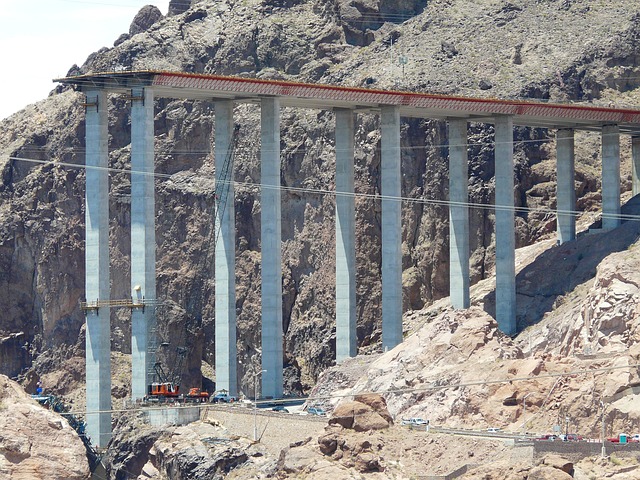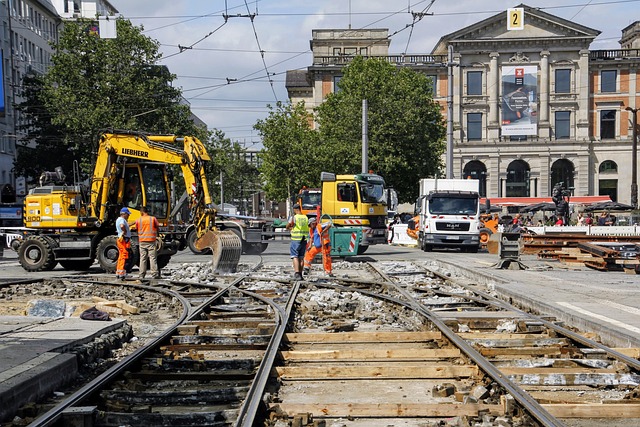Navigating Success: Choosing the Right Road Construction Contractor for Your Project
Embarking on a road construction project can feel like a monumental task. With numerous factors to consider, from budget constraints to timeline expectations, the choice of contractor plays a pivotal role in determining the success of the endeavor. Finding the right contractor involves an understanding of both the technical requirements of the project and the capabilities of potential partners. This guide will assist you on the journey to selecting a road construction contractor that aligns perfectly with your project’s needs.
Understanding Your Project Needs
Before diving into the selection process, it is imperative to have a clear understanding of your project’s scope and requirements. This includes defining the type of road construction needed, whether it’s for a residential area, a commercial space, or a highway. Additionally, consider the following aspects:
- Project Size: Determine the scale of the road construction. Is it a small local road or a large highway project? Understanding the size will help you filter contractors who specialize in your project’s scale.
- Budget: Establish a clear budget that encompasses not just construction costs, but also potential overruns and additional expenses that may arise.
- Timeline: Outlining a realistic timeline is crucial. Discuss how quickly you need the road completed, as well as any potential seasonal influences that may affect construction.
- Specific Requirements: Some projects may have unique requirements such as environmental considerations, accessibility needs, or integration of smart technology. Make sure to document all these needs upfront.
Researching Potential Contractors
With a well-defined understanding of your project, the next step is to research potential contractors. Start with a broad search to get an idea of the contractors available in your region. Leverage the following resources:
- Online Directories: Websites like Angie’s List, HomeAdvisor, or Thumbtack can provide insights and reviews about local contractors.
- Industry Associations: Organizations such as the Associated General Contractors of America (AGC) offer lists of member contractors who meet industry standards.
- Word of Mouth: Personal recommendations from friends, family, or colleagues can lead to trustworthy contractors with a proven record.
- Social Media and Forums: Platforms like LinkedIn or Reddit can provide community insights on performance and reliability.
Evaluating Contractor Qualifications
Once you’ve compiled a list of potential contractors, the next step is evaluating their qualifications. This process goes beyond just checking for licenses. The following points should be thoroughly considered:
- Experience: Look for contractors with experience in projects similar to yours. Their familiarity with the challenges specific to your type of construction is invaluable.
- Portfolio: Request access to their past projects. A solid portfolio not only demonstrates their competency but also reveals the quality of their work.
- Client References: Ask for contact information of past clients. Speaking directly to those who have worked with the contractor can provide firsthand insights and highlight strengths or weaknesses.
- Licensing and Insurance: Ensure that the contractor holds the necessary licenses for your project and is insured to protect against liabilities that might arise during construction.
- Sustainability Practices: In today’s eco-conscious world, contractors that adopt sustainable practices, such as responsible waste management and eco-friendly materials, are more desirable.
Requesting Proposals and Comparing Bids
After narrowing down your list of potential contractors, the next step is to request detailed proposals. Proposals should be comprehensive and include aspects such as project plans, timelines, materials to be used, and detailed cost estimates. This stage is where you will perform comparative analysis. Consider the following:
- Transparency of Costs: Ensure that bids include a breakdown of costs. Unjustified fees can lead to disputes down the line.
- Specifics of Work: Look for specificity regarding materials and methods proposed for your project. Vague descriptions may indicate a lack of thoroughness or understanding.
- Timeline Analysis: Compare the proposed timelines. A contractor that promises an unreasonably short timeline might be unrealistic or cutting corners.
- Flexibility and Communication: A contractor willing to communicate openly and adapt to feedback can foster a smoother collaborative environment.
Conducting Interviews
Scheduling interviews with your top candidates can provide further insights into their decision-making process and project management style. During the interviews, assess not only their technical knowledge but also their approach to customer relations. Inquire about:
- Staffing: Who will be assigned to your project? Understanding the experience and expertise of their team is crucial.
- Project Management Tools: Ask about the systems they use for tracking progress and communicating with clients.
- Handling of Challenges: Discuss hypothetical challenges that could arise during the project and gauge their problem-solving capabilities.
- Work Culture: A positive work culture leads to fewer delays and more coordinated efforts among staff.
Checking References and Reviews
Before making a final decision, it’s prudent to conduct a thorough reference check. Contact the references provided in their bids and ask pointed questions such as:
- Quality of Work: Was the completed project up to their standards?
- Timeliness: Did the contractor complete the work on time?
- Communication: How effective was the contractor in maintaining communication throughout the project?
- Resolution of Issues: How did the contractor handle unforeseen challenges or issues during the project?
Final Decision-Making Criteria
With all information gathered, you’re in a position to make an informed decision. Weigh the pros and cons of each contractor based on the gathered data. Consider not only the cost and experience but also the contractor’s reliability and approach to your project needs. It’s essential to choose a contractor whose values align with your own, ensuring a harmonious working relationship.
Establishing a Contract
Once you’ve made your selection, it’s time to establish a formal contract. The contract should cover all agreed-upon aspects, including:
- Scope of Work: Detailed description of the work to be performed.
- Payment Terms: Clear payment schedules, including any deposits required.
- Timeline: The estimated start and completion dates.
- Liability and Insurance Requirements: Terms regarding insurance coverage and liability clauses.
- Dispute Resolution: Outline processes for resolving disputes should they arise during the project.
Monitoring Progress and Maintaining Communication
After the contract is signed, the project has officially begun. It’s crucial to monitor progress closely while maintaining open lines of communication with your contractor. Regular check-ins and updates can help prevent misunderstandings and keep the project on track.
Conclusion
The road construction process is a significant investment of time, money, and resources. Making the right choice in contractor selection comes down to diligent research, effective communication, and a firm understanding of your project’s requirements. By following the outlined steps, you can navigate the complexities of construction contracts and emerge with a partner who will contribute positively to your project. Remember, a successful construction project is not just about building a road but about establishing a partnership that leads to a lasting impact on the community.


